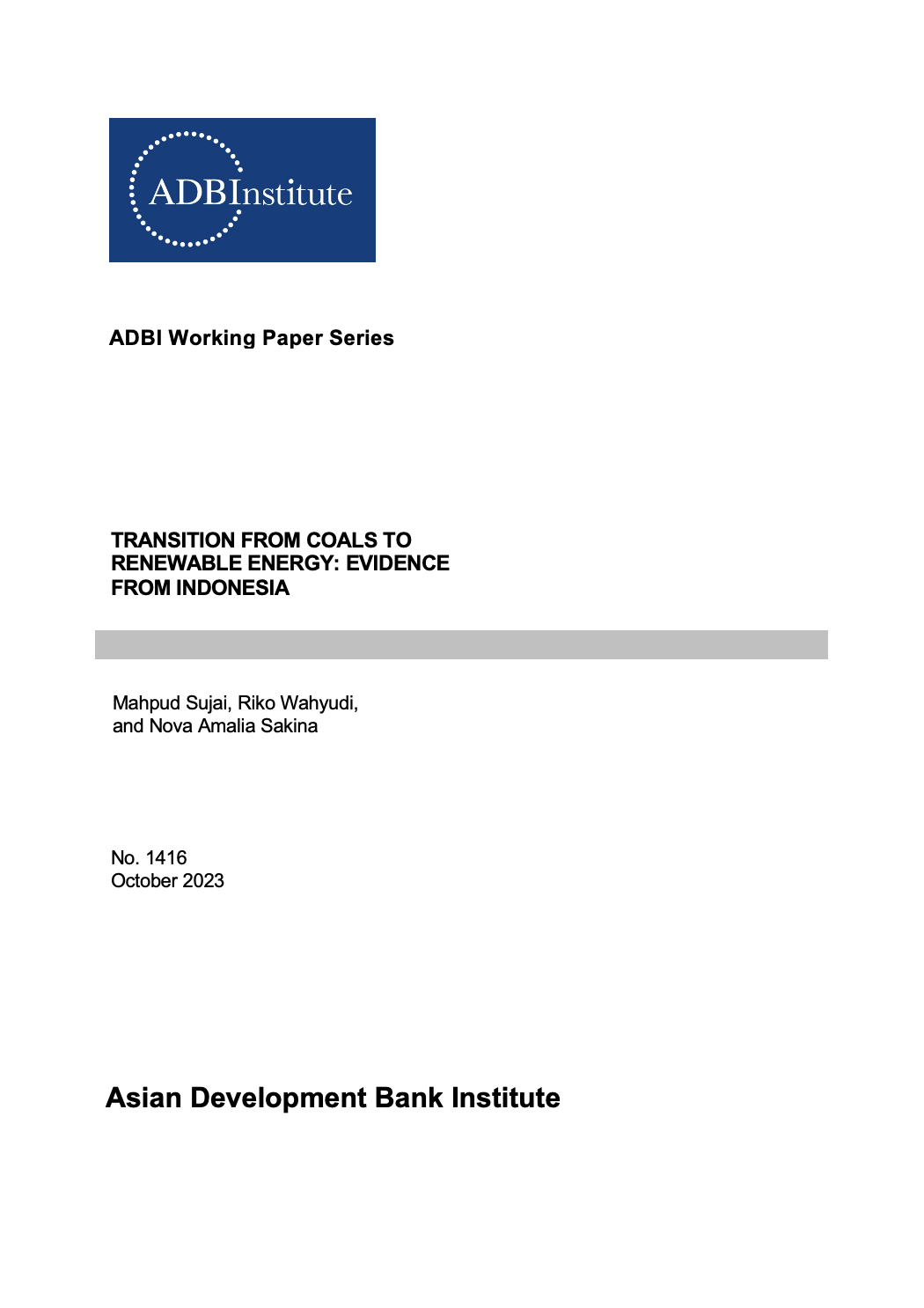Transition from Coals to Renewable Energy: Evidence from Indonesia
This paper identifies challenges and constraints of Indonesia’s energy transition mechanism.
Indonesia sources 50% of its energy supply from coal, making the power sector the second-largest contributor to the country's total emissions. The government has committed to reduce 314 million metric tons carbon dioxide equivalent by 2030. However, the transition to renewable energy will require numerous synergistic efforts in policy, technical, and financial arenas.
This paper identifies challenges and constraints of Indonesia’s energy transition mechanism from four aspects: national energy planning; regulatory and legal framework; technology and infrastructure; and renewable energy financing. The study exposes diverse challenges, highlighting the complexity that characterizes the transition process and the need for a holistic approach, where policy decisions are seamlessly integrated with technological advancements and bolstered by robust financial support.
Contents
- Introduction
- Coal-Fired Power Plant in Indonesia
- Policy Context: Indonesia's Coal Phase-Out Policy
- Challenges and Constraints of Indonesia's Energy Transition Mechanism
- Conclusion and Policy Recommendation
Published October 2023.



